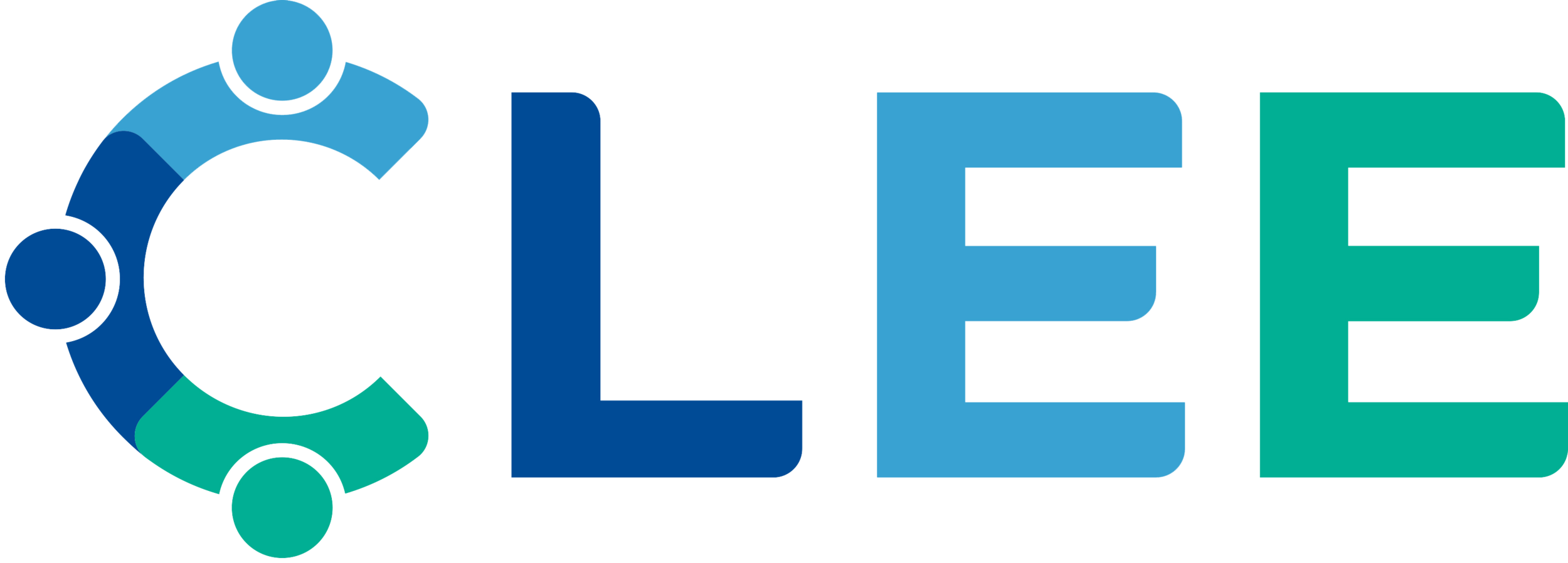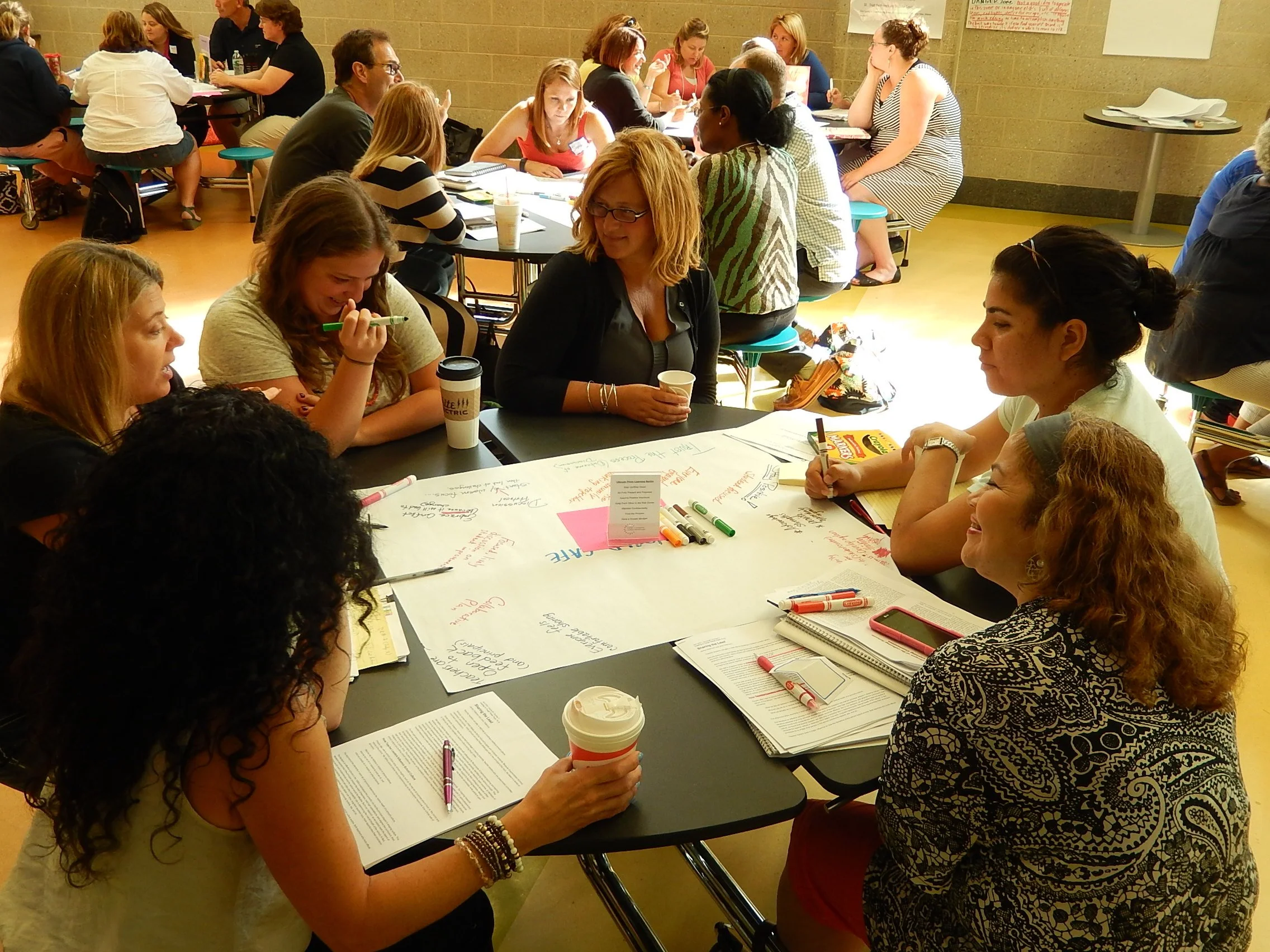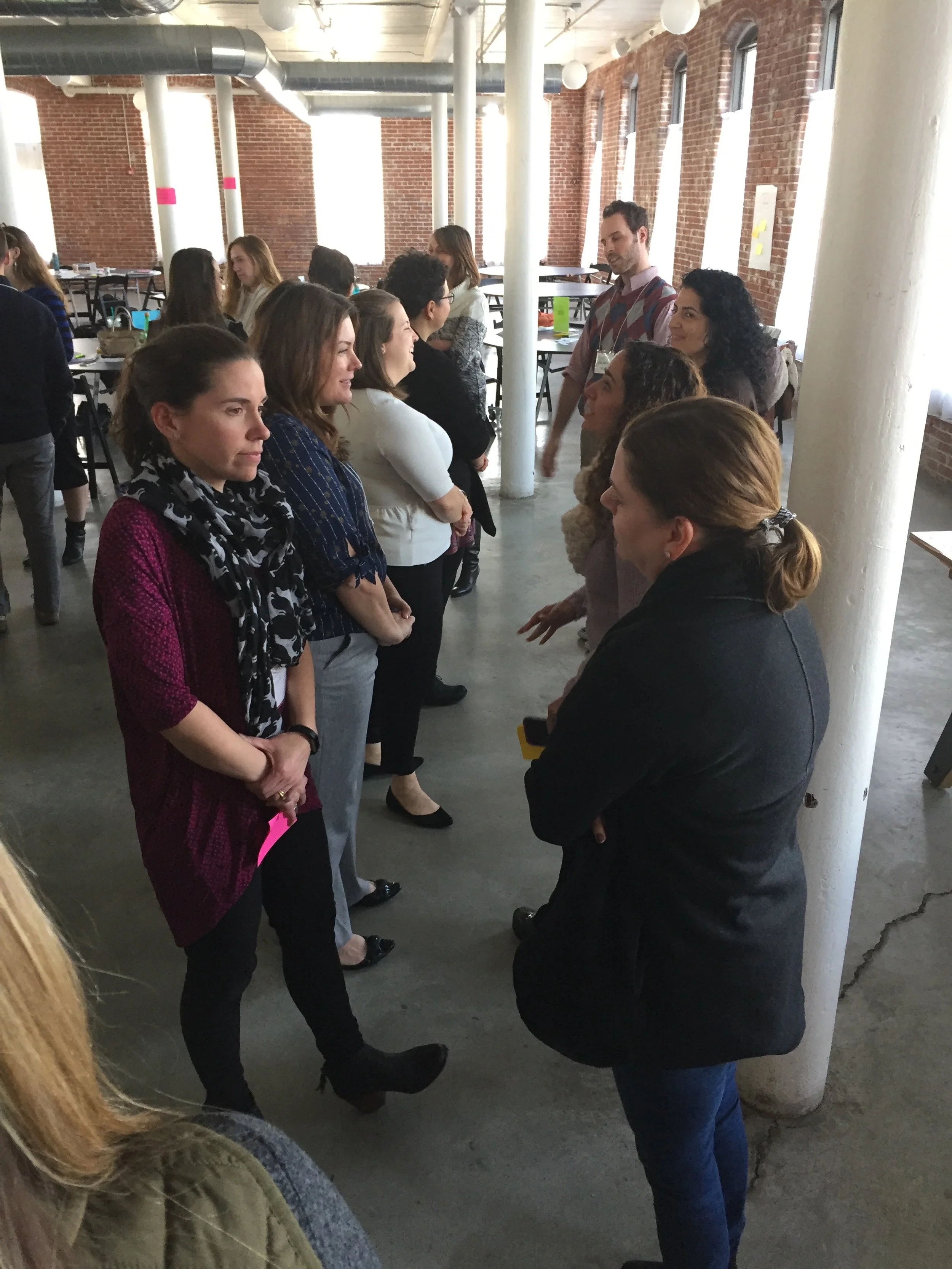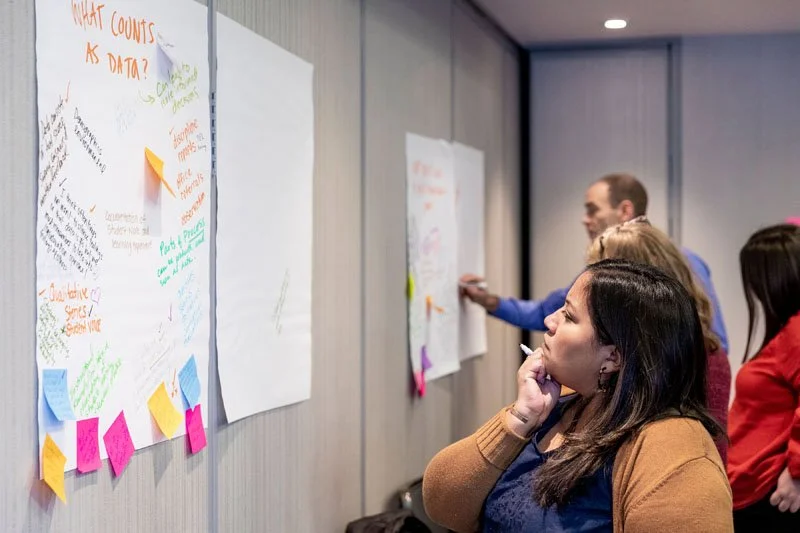Instructional Rounds - Make Time to Visit Classrooms for Deeper Learning
Classrooms are the heart of schools, but how much time do we get to spend in them as leaders?
Intention is important and Instructional Rounds are intended to deepen collective practice. Instructional Rounds are facilitated classroom observations done in a community of practice. Feedback is focused on using data and a focus question.
Read More
Join Me at the Fall Meeting! - Gene Thompson-Grove
Fall Meeting is where I connect with old colleagues and make new ones, expanding my network.
It is where my thinking is challenged and deepened, where I recommit to my beliefs and to working for a reimagined education system centered on equity and justice.
Read More
Create Inclusive Learning Spaces to Foster a Sense of Belonging
The journey matters as much as the destination.
Driving toward equitable outcomes for each and every student is the uncompromising destination for educators in the 21st century. How we get there matters. Community that offers a sense of belonging and inclusiveness is the roadmap to the destination. Fostering practices that empower widespread leadership is the journey we all must be on to reach the destination of equitable outcomes.
Read More
September 2024 CLEE News
What practices make you feel like you belong and are included in a learning space? How are you enacting those practices in learning spaces for adults and students?
Create Inclusive Learning Spaces to Foster a Sense of Belonging
Instructional Rounds - Make Time to Visit Classrooms for Deeper Learning
Join Me at the Fall Meeting! - Gene Thompson-Grove
CLEE Community of Practice - Reenergize your Practice by Collaborating with Colleagues
Support Your Initiatives with Professional Learning
Read More
CLEE’s Collaborative Equity Audits: Engaging Student Voices to Uncover Inequities
CLEE’s Collaborative Equity Audit is an inquiry-based collaborative experience for school, district, and community stakeholders to identify district strengths, uncover inequities and their root causes, and pinpoint high-priority areas for improvement. The voices and perspectives of each stakeholder, as well as input from the larger community, bring this process to life. Students, families and guardians, educators, and community members join together in this work to build equitable opportunities for all students.
Read More
Join Me at the Fall Meeting! - Teri Schrader
I never call Fall Meeting a conference. It isn’t a traditional conference where there’s a menu and you pick and choose between sessions to listen in on. Or skip and go shopping! We have built the Fall Meeting into an important professional gathering with powerful common experiences for participants. Our community became accustomed to Fall Meeting as a space for professional growth, renewing relationships and building new ones. I am so glad it is back and we have the opportunity to work with brilliant and passionate educators. Fall meeting is a meeting: a meeting of the minds. We spend just a few days together and by the end you always get a sense of “Oh these are my people!”
Read More
August 2024 CLEE News
How will you keep the main thing, the main thing?
Introducing our New PRN Cohort!
CLEE’s Collaborative Equity Audits: Engaging Student Voices to Uncover Inequities
Remembering Dr. Jonathan Ponds
Join Me at the Fall Meeting! - Teri Schrader
Fall Meeting Program
Support Your Initiatives with Professional Learning
Read More
July 2024 CLEE News
How are you celebrating the successes from this year? What can you and others learn from them?
Congratulations PRN 2024 Graduates!
Fall Meeting - Rhode Island, November 7-8, 2024
Fall Meeting Volunteer Opportunities
CLEE Facilitative Leadership Institute - Grow Your Skills as an Equity Leader
CLEE Community of Practice - Reenergize your Practice by Collaborating with Colleagues
Read More
Join Me at the Fall Meeting! - Eve Rifkin
The Fall Meeting originated with our colleagues at SRI as an annual gathering of learning with the entire community. We are pleased to bring this event back to give educators the opportunity to share and learn from colleagues all over the world.
Our Fall Meeting has always been a place for me to connect with educators from around the country who are grappling with some of the challenges that I am facing. It is a place of camaraderie and growth. It is where I feel simultaneously at home and on a new adventure. It is also where I have experienced the most elevated sense of myself as a true professional.
Read More
June 2024 CLEE News - The Power of Colleagues
What investments can you make now to build capacity for the future?
Join Me at the Fall Meeting! - Eve Rifkin
Listen to Learn, Mentor, and Disrupt Quick Fixes!
CLEE Welcomes Two new Board Members From the SRI Community!
Worried About Funding Cuts? Get FREE Professional Learning in Your District!
Attract, Hire, and Keep the Best Team!
Summer Staff Retreats can Set You Up for a Successful Year
Read More
Summer Staff Retreats can Set You Up for a Successful Year
A summer administrative retreat can serve as an important bridge between school years to celebrate success, learn from challenges, and set direction for the future. CLEE can partner with you to plan and facilitate a team retreat that will charge your team up, bring them together with an aligned purpose ,and all while having fun together!
Read More
Building Community Capacity is Key to Long-Term Success
With shrinking resources and added responsibilities, educators need to think strategically about how to effectively build a process for success. Without a developed system, it can feel like initiative overload. At CLEE we have found one of the best ways to future-proof the impact of your professional development is to create a system of continuous improvement that allows innovations to stick and make their intended impact.
Read More
May 2024 CLEE News - Success is a Long-Term Investment
What investments can you make now to build capacity for the future?
Building Community Capacity is Key to Long-Term Success
Summer Staff Retreats can Set You Up for a Successful Year
The Former SRI Fall Meeting is Back!
Become a Certified Principal in Rhode Island in Just 11 Months
Analyzing Student Work to Drive Improvement in the Instructional Core
Read More
What Are You Reading?: Dr. Brandi Hinnant-Crawford on Improvement for Liberation
Dr. Hinnant-Crawford struck me with her challenge to examine process in a recent episode of the HTH Unboxed podcast,, “...we think about the outcomes of improvement and making sure we have an equity or justice centered outcome. But also, how do we make sure we have an equity and justice centered process?” She reminds us that it might be a lot easier to look at data to discover inequities, whereas looking in the mirror may be more difficult, as one may not want to see how they are perpetuating injustices or oppressions with processes that leave out the voices of others. While looking at data is a key component, only looking at the data omits other variables, including the extreme importance of others’ voices as a critical component in improvement science.
Read More
Opening Up the Conversation through What? So What? Now What?
Here is one thing I learned over many years of practice: telling someone how to solve a problem or dilemma means there is a 95% chance that the problem will not be solved and in some cases will get worse. There’s always the 5% of the time that the solution works as envisioned, however that’s not a great return.
In my experience, the conversations that produce the most change in a problem or dilemma are those that follow a conversational sequence designed to open up thinking, not provide a solution or answer. This sequence of questions, developed originally for use in the What? So What? Now What? Protocol, sets up a conversational model that opens up possibilities, supports individual agency, and keeps us working in our realm of influence.
Read More
Mentoring is Reciprocal
A core component of CLEE’s Equity Leader Accelerator Program (ELAP) is the mentoring experience in which school leaders discuss dilemmas and successes as they address educational equities in their school context with their mentors. While these meetings are often geared toward the challenges the mentee is facing, the mentor also benefits as they reflect on their own practice.
Read More
April 2024 CLEE News - Data and Impact
How are you using data to identify needs in your setting? Who is included?
Use School Community Data for Improvement
Mentoring is Reciprocal
Become a Certified Principal in Rhode Island in just 11 Months
Learn Key Strategies to Collaborate for Equity in No-Cost Virtual Sessions
Thank You for Your 401Gives Gifts!
What Are you Reading? HTH Unboxed Podcast Dr. Brandi Hinnant-Crawford on Improvement for Liberation
Opening Up the Conversation through What? So What? Now What?
Read More
Use School Community Data for Improvement
Data can be a powerful tool for setting direction and monitoring progress. One of our most important tools for collecting data is CLEE’s validated Learning Community Survey (LCS). The survey measures the extent to which all the educators and leaders in a school are enacting the six Core Leadership Practices that research has found to increase adult collaboration, student learning and equity. It is similar to the PLC Survey many have used, but further articulated, validated, and aligned to practices that increase educational equity.
Read More
Attract, Hire, and Keep the Best Team!
Do you need to hire? Ideally, an amazing candidate shows up at the perfect time with the best qualifications, an equity mindset, with a background that can connect with each and every student in your district. Hiring takes time and thoughtful systems and practices to create and continuously attract and retain the best adults to support students.
Read More
What are you Reading?: Overcoming Barriers to Equity Through Intentional Learning Communities by Kirsten Ebersole Lacroix, Donna Braun, Michelle Li, Chris Jones
Though I’m listed as an author, I definitely did more reading than writing for this chapter. My role in professional development for adult collaboration has been more about support than practice for the last 20 years, and I took this chapter as an opportunity to make more explicit the connections between School Reform Initiative (SRI) practices and CLEE’s strategies. It was a way to connect where we have been with where we want to go. I am most excited for how we were able to illustrate how you can use a learning community to foster educational equity.
Read More



















